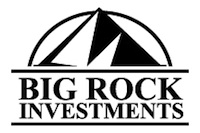So you want to be a real estate investor or at least get your feet wet into the exciting world of real estate. After all, with so many TV shows out there exalting the rags-to-riches stories of average Joes striking it big, why can’t you do the same? Aside from the fact that TV is not intended to be a proxy for reality, despite the misleading moniker ‘reality television’, rarely do millionaires come out of nowhere from a few house flips.
Nevertheless, investing in real estate certainly can be an extremely lucrative endeavor if you have the right mindset, tools and opportunities. However, you first need to ask yourself a very important question: What type of real estate investor do you want to be?
There are 3 primary ways to start investing in real estate: flipping houses, land lording and private mortgage lending.
Flipping Houses
This is what most people get excited about today when they think of real estate investing, and it’s no surprise. Just turn on HGTV, A&E or one of a dozen other lifestyle-themed channels and you’ll see many flavors of the same idea: buy a rundown house, give it a little polish or a major overhaul, put it on the market and watch the dollars rain down like snowflakes on a December morning.
As you can imagine, it’s not always that simple. However, there’s no doubt that while it does indeed take work to get all your systems up and running, you can make incredible amounts of money with this business model. The keys will be to learn and implement the proper real estate investment systems, get a great team of people around you (you didn’t think you’d be doing everything, did you?) and make sure you’re in a good market that can support your efforts. And — don’t think it happens overnight.
Pros: Massive profit potential. Cons: Takes active work — is not a passive strategy. For some, this equates a job.
Land Lording
So let’s say you want to get your hands dirty a bit but you’d prefer your real estate profits to be more on the passive side. Well, being a landlord might be a better calling for you. You can still focus on studying different market statistics and trends, get your marketing in order, secure a good property management team and watch the monthly rent checks come in. Accumulate your duplexes and triplexes, maybe even a small apartment building here and there while you slowly build your portfolio empire.
Pros: Passive income; can be a retirement strategy. Cons: Requires great property management to be done right, else you just have another job. Isn’t for big upfront profits — is a long-term approach (this is also a pro, depending on your goal).
Private Mortage Lending
This is where many passive investors really cement their standing as true investors. Private mortgage lending is where you loan your funds to others to invest in real estate, such as their own house flips, while you earn a very high interest rate on your loan. How high? Anywhere from 8-12% annualized is very common.
Are your funds secured? Absolutely – investors will record your loan as a mortgage against the property being renovated; this collateralizes your funds. Well, technically an attorney or title and escrow company will be the ones to do it — never give your funds directly to the investor (we never take funds directly from our private lenders for our projects).
Furthemore, since your funds should be lent on properties with substantial equity from the date of the loan, you should have market safety beyond the mortgage document itself. Ask us directly if you have questions about how this works.
Pros: Secured, insured, high rate of return. Cons: You should be able to analyze both the borrower and project of each loan.
Of course, there are more than 3 ways to start investing in real estate, but these stand out as the most obvious ones being leveraged today. While there are many industries today offering investment appeal, real estate has historically stood out as the best one for many different criteria.
If done right, investing in real estate could make you wealthy, leaving you with more time to spend on other passions such as hobbies, travel, and of course, family.
Want to know more? Talk to us about what strategy may make the most sense for you.

